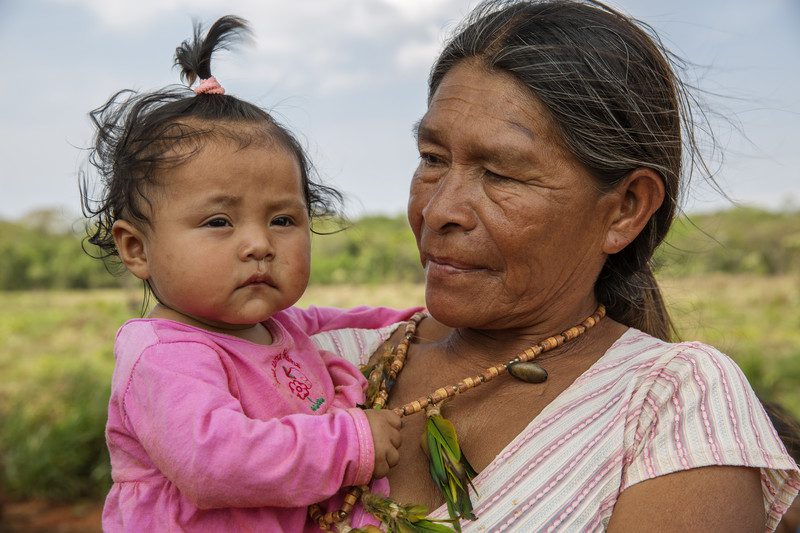We’ve been campaigning for six months to have Australia’s Big 4 Banks adopt a zero tolerance approach to land grabs. In the past two weeks we’ve had two big wins – both NAB and Westpac have changed their policies to reduce their risk of backing companies involved in land grabs. There’s still a way to go of course to before they adopt a ‘Zero Tolerance’ approach, but half of the Big 4 banks have listened.
Now, the pressure is on the Commonwealth Bank of Australia and the ANZ Bank. As we saw on 60 Minutes tonight, both these banks are yet to adopt zero tolerance to land grabs in their financial relationships — and both have been backing companies accused of practices that have seen people left without their land, their homes and their means to earn a decent living.
The 60 Minutes story was as moving as it was alarming. 60 Minutes journalist Michael Usher interviewed people in the Jatayvary community in Brazil, who live in impoverished conditions right beside land that has been recognised as Indigenous land — but on which farmers grow sugar cane for Bunge — a company backed by the Commonwealth Bank.
The families of Jatayvary talk about the pesticides that get into their water supply and cause sickness and skin infections, with children suffering the most.
Village Chief Arlindo Kaiowá had documents that confirmed the land belonged to him and his community.
“This is the document that confirms this is my land … this land has been recognised as Indigenous,” he says.
Meanwhile, the ANZ claims it has no responsibility to support justice for communities, despite financing Phnom Penh Sugar for more than three years up until mid-2014. Phnom Penh Sugar is a company implicated in the use of child labour and causing food shortages after forcing hundreds of families off their land.
A 40-year-old mother of five told the heartbreaking story of how her home and crops were bulldozed to make way for the sugar plantation.
“They came here and used a bulldozer to clear the crops and the house — all the crops we’ve been growing for many years … we don’t have any crops any more. They cleared our land to grow their sugar.
Her family was paid just $50 for the land and forced onto a tiny plot.
“We are suffering; we don’t have enough jobs or fair compensation from this company (Phnom Penh Sugar) so please ANZ help the people, we need your help so we don’t live in fear and suffering.”
The program posed the question of whether banks apply the same scrutiny to these deals, as they do to the millions of Australian customers who bank with them.
It also pointed out that the Big 4 banks are signatories to various ethical investing agreements, and all have signed up to the UN Global Compact committing them to responsible investment in the agricultural commodities industry.
These seem to be hollow actions when you consider what is really happening on the ground in Brazil and Cambodia.
In the words of Oxfam Australia’s Chief Executive, Dr Helen Szoke: “If it’s good enough to do due diligence to make sure you get a return on investment in a money sense, why isn’t it good enough to do due diligence to make sure you get a return on investment on your reputation, on the public perception of how you operate as a financial institution? Surely that’s a really important part of what their business model should be.”
Join thousands of other Australians and write to your bank today.



